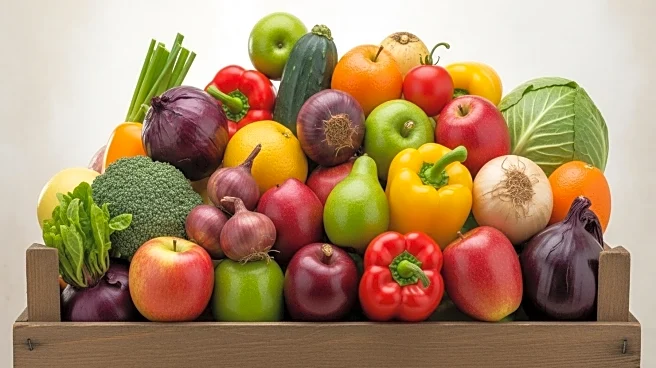What's Happening?
Iraq's Ministry of Agriculture has announced a ban on the import of 44 agricultural and animal products, citing a surplus in local production and stable prices in domestic markets. The decision aligns with the country's agricultural calendar and aims to support local producers by covering production costs and ensuring profitability. Despite challenges such as water shortages and drought, farmers have adopted modern irrigation techniques, leading to increased local produce. The ministry is considering proposals to export surplus products to prevent oversupply from lowering local market prices. Additionally, customs tariffs will be imposed on most imported agricultural products to ensure fair price competition.
Why It's Important?
The ban on agricultural imports is significant as it reflects Iraq's efforts to bolster its domestic agricultural sector amidst challenges like water scarcity. By supporting local producers, the policy aims to stabilize the agricultural economy and maintain profitability for farmers. The move could also impact international trade relations, as Iraq shifts focus from imports to potential exports. This decision may influence global agricultural markets, particularly for countries that export to Iraq. The imposition of customs tariffs on imports further underscores Iraq's commitment to protecting its local industry and ensuring competitive pricing.
What's Next?
The Ministry of Agriculture plans to monitor border crossings to prevent smuggling and ensure the effectiveness of the import ban. Discussions around exporting surplus products are ongoing, which could open new markets for Iraqi produce. The government may also continue to refine its agricultural policies to address challenges like water shortages and improve irrigation techniques. Stakeholders, including local farmers and international trade partners, will likely respond to these developments, potentially leading to adjustments in trade agreements and agricultural practices.










